Compendium of Scientific, Medical, and Media Findings Demonstrating Risks and Harms of Fracking (Unconventional Gas and Oil Extraction) Seventh Edition Press Release by Concerned Health Professionals of NY, December 14, 2020
The Compendium of Scientific, Medical, and Media Findings Demonstrating Risks and Harms of Fracking (the Compendium) is a fully referenced compilation of evidence outlining the risks and harms of fracking.
The Compendium is organized to be accessible to public officials, researchers, journalists, and the public. In addition, the Compendium is complemented by a fully searchable, near-exhaustive citation database of peer-reviewed journal articles pertaining to shale gas and oil extraction, the Repository for Oil and Gas Energy Research, that was developed by PSE Healthy Energy and which is housed on its website (https://www.psehealthyenergy.org/our-work/shale-gas-research-library/).
Download the full edition of the 7th Compendium
For this seventh edition of the Compendium, as prior ones, we compiled findings from three sources: articles from peer-reviewed medical or scientific journals; investigative reports by journalists; and reports from, or commissioned by, government agencies. Peer-reviewed articles were identified through databases such as PubMed and Web of Science, and from within the PSE Healthy Energy database. Our entries briefly describe studies that document harm, or risk of harm, associated with fracking and summarize the principal findings.
The studies and investigations referenced in the dated entries catalogued in Compilation of Studies & Findings are current through August 1, 2020.
In our review of the data, seventeen compelling themes emerged; these serve as the organizational structure of the Compendium. Readers will notice the ongoing upsurge in reported problems and health impacts, making each section top-heavy with recent data.
The Compendium focuses on topics most closely related to the public health and safety impacts of fracking. These include risks from fracking infrastructure, including compressor stations, pipelines, silica sand mining operations, natural gas storage facilities, the manufacture and transportation of liquefied natural gas (LNG), and gas-fired power plants.
Fracking, a major source of two greenhouse gases, carbon dioxide and methane, is incompatible with climate solutions. Climate change is a public health crisis and receives our close attention in this seventh edition.
Given the rapidly expanding body of evidence related to the risks and harms of unconventional oil and gas extraction, we plan to continue updating the Compendium approximately every year. It is a living document, housed on the websites of Concerned Health Professionals of New York and Physicians for Social Responsibility. Read more about the process and scope of our work in the “About this Report” section of the Compendium.
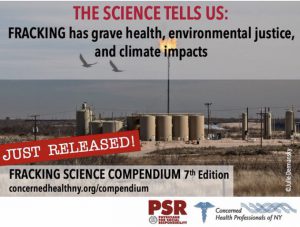
***
New Analysis of Fracking Science (nearly 2,000 studies) Finds Grave Health, Environmental Justice, and Climate Impacts Press Release, December 14, 2020
Major report from health experts and scientists who have closely assessed a decade of science on fracking reveals alarming trends for people and the environment
A new report from leading scientists, doctors, and environmental experts examining nearly 2,000 academic studies, government reports, and investigative reporting finds that drilling, fracking, and the entire fracked oil and gas cycle impose grave harms to human health and well-being and that those problems cannot be mitigated.
Today, Concerned Health Professionals of New York and Physicians for Social Responsibility released the Compendium of Scientific, Medical, and Media Findings Demonstrating Risks and Harms of Fracking, seventh edition, which tracks, assembles, and analyzes key trends in the rapidly growing body of evidence about health, climate, and environmental justice consequences of drilling, fracking, and associated infrastructure.
Overwhelmingly, evidence demonstrates that these activities are dangerous to public health, the environment, and the climate, and that there are fundamental problems with the entire life cycle of operations associated with fracking. Emerging science also shows that fracking is a grave environmental justice issue, with communities of color, Indigenous people, and impoverished communities bearing disproportionate harm.
The Compendium reviews nearly 2,000 academic studies, government reports, and investigations of data by journalists about the environmental and health impacts of drilling and fracking. It is increasingly important to consider the whole body of evidence and identify key trends. That’s what the Compendium uniquely does, allowing the public, elected officials, and regulators to consider the whole body of evidence, identify key trends, and utilize important new research as it appears, promoting health and potentially saving lives.
Sandra Steingraber, PhD, co-founder of Concerned Health Professionals of New York and an author of the Compendium, said, “Our knowledge about the dangers of fracking is now both broad and deep. All together, thousands of scientific studies, reports, and investigations show us that extracting oil and gas by shattering the nation’s bedrock with water and chemicals creates fundamental, intrinsic, unfixable problems. Toxic pollution, water contamination, earthquakes, radioactive releases, and methane emissions follow fracking wherever it goes. Some of these problems get worse after depleted wells are abandoned, and no set of regulations is capable of preventing harm.”
With hundreds of new peer-reviewed scientific studies published in the past year alone, several trends in the evidence have been increasingly well-documented. Among more than a dozen emerging trends:
- Fracking poses serious health harms to people, especially those living in proximity not only to drilling and fracking but also to associated infrastructure like compressor stations and gas-fired power plants.
- Fracking raises human rights and environmental justice issues, disproportionately affecting people of color and low-income communities
- Health problems associated with fracked gas include cancers, asthma, respiratory distress, rashes, heart problems, and mental health problems.
- Multiple studies of pregnant women living near fracking operations across the nation show impairments to infant health, including birth defects, preterm birth, and low birth weight. Preterm birth and low birth weight are the leading causes of infant death in the U.S.
- Fracking and natural gas are incompatible with climate solutions.
Pediatrician Edward Ketyer, M.D., F.A.A.P., of Physicians for Social Responsibility/Pennsylvania, said, “The fracking science Compendium is an essential resource for health professionals like myself who are addressing how terribly damaging fracking is to the health of our patients and the communities we live in. Dozens of peer-reviewed studies contained in the Compendium indicate clearly that women and children are most vulnerable to the impacts of pollution coming off every piece of fracking infrastructure. As a pediatrician, I’m very concerned that children bear the greatest burden of all as they face cradle-to-grave health impacts from health-damaging chemicals and emissions – to say nothing of the stability of the planet’s climate system which we all depend on. It is clear from this report that fracking has never been done safely anywhere; it is inherently dirty and dangerous, and industry rules and government regulations can’t fix that fact.”
These health problems are born disproportionately by communities of color and impoverished communities. Significant evidence now makes clear that fracking is a significant and growing environmental injustice.
Laura Dagley, BSN, RN, of Physicians for Social Responsibility in Pennsylvania, said, “As a nurse and PSR staffer, I advocate for the health of my communities. Through my work, I have met many people whose lives are negatively impacted by fracking. From seeing the stress that fracking infrastructure has brought to their daily lives, to hearing of many visits to the doctor managing new asthma exacerbation or skin rashes, to feeling their fear as their neighbors’ children suffer from a rare cancer, I am reminded of the real people behind the data. With fracking literally in their backyards, many of these individuals struggle to have their voices heard. They do not have the time, money, or numbers in their rural communities to draw attention to the negative toll fracking is taking on their lives. The Compendium compiles a large body of data demonstrating fracking’s harm and succinctly summarizes the research and reports. It is a powerful tool to show policymakers the evidence that fracking is harming people.”
At a broader scale, the evidence is overwhelming that fracking is significantly exacerbating climate change and is responsible for the current surge in global levels of methane, a greenhouse gas 86 times more potent at trapping heat than carbon dioxide over a twenty-year period. Methane escapes into the atmosphere all along the gas extraction, processing, and distribution system, at significant rates that exceed earlier estimates by a factor of two to three and in ways that cannot be mitigated or eliminated through regulations.
Kathleen Nolan, MD, MSL, of Physicians for Social Responsibility and Concerned Health Professionals of NY, said, “Detailed and comprehensive research now demonstrates decisively that fracking and its related activities release significant amounts of methane into the atmosphere, making the process calamitous for climate change. Science is telling us that drilling and fracking are incompatible with any meaningful effort to mitigate carbon emissions and that to curb global warming most quickly, we need to stop permitting and subsidizing fracking. Just as we have learned to give up smoking to protect our lungs, we must give up fracking to protect our atmosphere, the air that we all breathe.”
From the Main Findings of the Compendium, “As fracking operations in the United States and abroad have increased in frequency, size, and intensity, a significant body of evidence has emerged to demonstrate that these activities are dangerous in ways that cannot be mitigated through regulation. Threats include detrimental impacts on water, air, climate stability, public health, farming, property values, and economic vitality… Our examination uncovered no evidence that fracking can be practiced in a manner that does not threaten human health directly and without imperiling climate stability upon which public health depends.”
Several experts are available, upon request, for interviews about the new report and the issue more broadly.
Contact: Caitlyn McNamee, email hidden; JavaScript is required
***
From Compendium 7:
… The Compendium of Scientific, Medical, and Media Findings Demonstrating Risks and Harms of Fracking(the Compendium) is a fully referenced compilation of evidence outlining the risks and harms of fracking. It is a public, open-access document that is housed on the websites of Concerned Health Professionals of New York (www.concernedhealthny.org) and Physicians for Social Responsibility (www.psr.org). The six earlier editions of the Compendium have been used and referenced all over the world. The Compendium has been twice translated into Spanish: independently in 2014 by a Madrid-based environmental coalition, followed by an official translation of the third edition, funded by the Heinrich Böll Foundation and subsequently updated in December 2019 with new data from the sixth edition. The Compendium has been used in the European Union, South Africa, the United Kingdom, Australia, Mexico, and Argentina. …
The Compendium is generally a volunteer project and has no dedicated funding; it was written utilizing the experience and expertise of numerous health professionals and scientists who have been involved in this issue for years. …
Main Findings
As of 2020, hydraulic fracturing techniques have been used on an estimated one million U.S. wells to shatter rock layers and extract the oil or gas trapped inside. As fracking operations in the United States and abroad have increased in frequency, size, and intensity, a significant body of evidence has emerged to demonstrate that these activities are dangerous in ways that cannot be mitigated through regulation. Threats include detrimental impacts on water, air, climate stability, public health, farming, property values, and economic vitality.
Emerging science also shows that fracking is an environmental injustice, with injuries not borne equally by all. Throughout the United States, pregnant women, children, communities of color, Indigenous people, and impoverished communities are disproportionately harmed by fracking.
A growing body of research reveals fundamental problems with the entire life cycle of operations associated with fracking and its infrastructure. Independent, peer-reviewed analyses and industry studies alike indicate that fracking is a dangerous process with innate engineering problems that include uncontrolled and unpredictable fracturing, induced earthquakes, and well casing failures that worsen with age and lead to water contamination and fugitive emissions.
Unpreventable problems also originate from other sources. These include radiation releases; unmapped and abandoned wells that serve as pathways for contamination; and operations necessary for safety (venting, flaring, blowdowns) that result in methane releases and hazardous air pollution.
The disposal of fracking wastewater remains a problem with no solution.
More than 17.6 million people within the United States live within one mile of an active oil and gas well.
The result is a public health and climate crisis.
Public health harms now linked with drilling, fracking, and associated infrastructure include cancers, asthma, respiratory distress, rashes, heart problems, and mental health problems. Multiple studies of pregnant women living near fracking operations across the nation show impairments to infant health, including birth defects, preterm birth, and low birth weight.
North American fracking operations are driving the current surge in global levels of methane, a greenhouse gas 86 times more potent at trapping heat than carbon dioxide over a twenty-year period. Methane escapes into the atmosphere from all parts of the extraction, processing, and distribution system, at significant rates that exceed earlier estimates by a factor of two to three.
In sum, the vast body of scientific studies now published on hydraulic fracturing in the peer-reviewed scientific literature confirms that the climate and public health risks from fracking are real and the range of environmental harms wide.
Our examination uncovered no evidence that fracking can be practiced in a manner that does not threaten human health directly and without imperiling climate stability upon which public health depends.
The rapidly expanding body of evidence compiled here is massive, troubling, and cries out for decisive action. Across a wide range of parameters, the data continue to reveal a plethora of recurring problems that cannot be sufficiently averted through regulatory frameworks. The risks and harms of fracking are inherent to its operation.
The only method of mitigating its grave threats to public health and the climate is a complete and comprehensive ban on fracking.
Indeed, a fracking phase-out is a requirement of any meaningful plan to prevent catastrophic climate change.

Refer also to:
2020 12: The Alberta gov’t prepares to kill The Water Act and deregulate much much more, to enable the ever increasing harms.
2019 06 19: Vicky Simlik: Living in the middle of a gas field in Canada
A while back, I purchased the Simlik vs Encana/Ovintiv legal file documents.
To honour the many of us being poisoned by frac’ing and our lands/homes/businesses harmed, I uploaded them today, and link to them below:
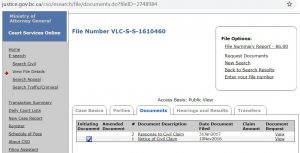
Encana’s Statement of Defence (the company lied throughout their Statement of Defence in Ernst vs Encana, as did the Alberta gov’t in theirs)
From the last page of Compendium 4.0:
Conclusion
All together, findings to date from scientific, medical, and journalistic investigations combine to demonstrate that fracking poses significant threats to air, water, health, public safety, climate stability, seismic stability, community cohesion, and long-term economic vitality. Emerging data from a rapidly expanding body of evidence continue to reveal a plethora of recurring problems and harms that cannot be averted or cannot be sufficiently averted through regulatory frameworks. There is no evidence that fracking can operate without threatening public health directly or without imperiling climate stability upon which public health depends. In the words of investigative journalist Andrew Nikiforuk:
Industry swore that its cracking rock technology was safe and proven, but science now tells a different story. Brute force combined with ignorance … has authored thousands of earthquakes … [and] called forth clouds of migrating methane…. The science is complicated but clear: cracking rock with fluids is a chaotic activity and no computer model can predict where those fractures will go. The regulatory record shows that they often go out of zone; extend into water; and rattle existing oil and gas wells, and these rattled wells are leaking more methane.923
And in the words of a new commentary about fracking in the American Journal of Public
Health:
Mounting empirical evidence shows harm to the environment and to human health … and we have no idea what the long-term effects might be…. Ignoring the body of evidence, to us, is not a viable option anymore.924
2015 09: Andrew Nikiforuk’s Slick Water is published
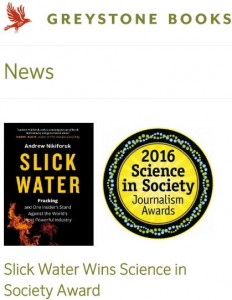
Anthony Ingraffea, PhD, Dwight C. Baum Professor of Engineering, Cornell University, said, “In 2008, when New York State first declared a moratorium on fracking, only six peer-reviewed papers on the health and environmental impacts had been published. Now there are more than 400, and the vast majority show a clear and present danger.
What’s more, many problems are unfixable by regulations of any kind. It was a wise governor who said ‘wait’ in 2008. And it is wise to continue to wait.”
2012 03 19: Human Health Risk Assessment of Air Emissions from Development of Unconventional Natural Gas Resources by Lisa M. McKenzie et al, Colorado School of Public Health, University of Colorado
Results: Residents living ≤ ½ mile from wells are at greater risk for health effects from NGD than are residents living > ½ mile from wells. Subchronic exposures to air pollutants during well completion activities present the greatest potential for health effects. The subchronic non-cancer hazard index (HI) of 5 for residents ≤ ½ mile from wells was driven primarily by exposure to trimethylbenzenes, xylenes, and aliphatic hydrocarbons. Chronic HIs were 1 and 0.4. for residents ≤ ½ mile from wells and > ½ mile from wells, respectively. Cumulative cancer risks were 10 in a million and 6 in a million for residents living ≤ ½ mile and > ½ mile from wells, respectively, with benzene as the major contributor to the risk.
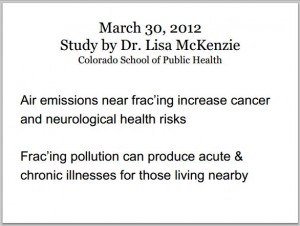
2011 Alberta Canada:
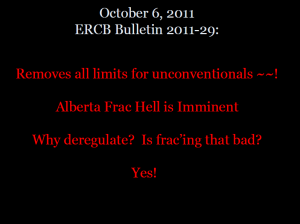
2010: Natural Gas Operations from a Public Health Perspective by Theo Colborn et al
For many years, drillers have insisted that they do not use toxic chemicals to drill for gas, only guar gum, mud, and sand. While much attention is being given to chemicals used during fracking, our findings indicate that drilling chemicals can be equally, if not more dangerous.
2006: Alberta’s energy regulator, industry and gov’t fund and incorporate Synergy Alberta with which to propagandize frac’d families and communities, and media into reporting the harmed are “not opposed” no matter how heinous the harms suffered, and to “educate” the public and other jurisdictions that frac’ing improves the environment and causes no pollution or harms (because of “best in the world” regulations and “world class” regulators).
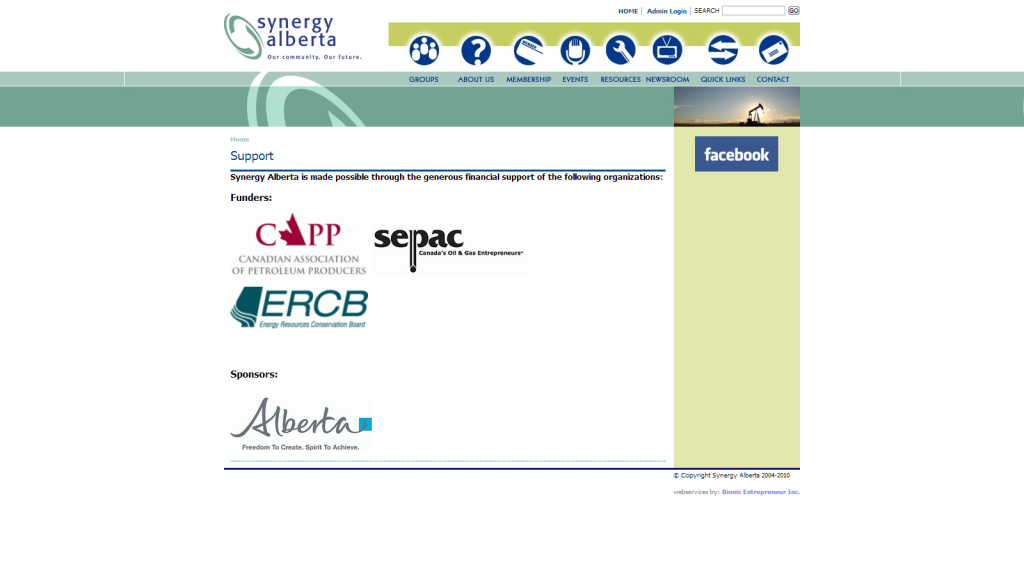
2006 Ernst’s Water:
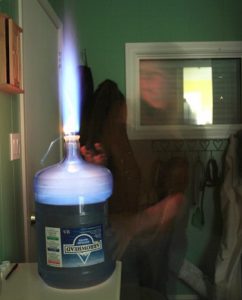
2006 05 Spirit River Alberta: Rancher Bruce Jack and two industry gas-in-water testers are seriously injured and hospitalized when Jack’s methane and ethane (and who know what mystery chemical additives) contaminated water ignites.
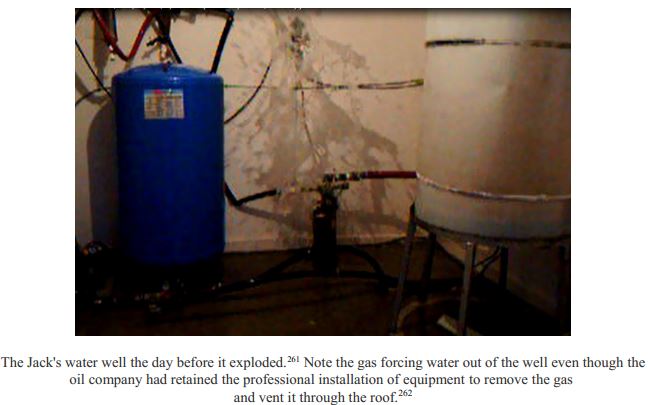
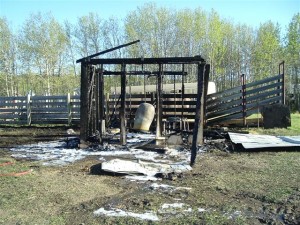
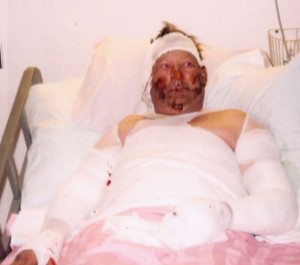
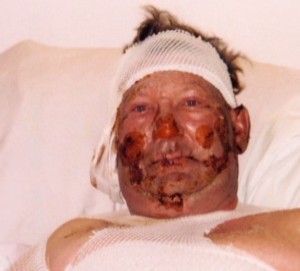
2005 13: Ernst’s explosive water hits Front Page of the Edmonton Journal
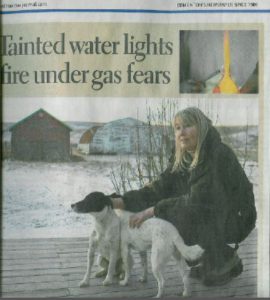
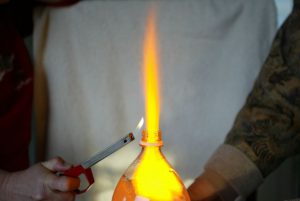
Front Page photos by Chris Schwarz (taken December 6, 2005), Edmonton Journal
2005 11 24: Alberta’s regulator judges Ernst a criminal (in writing and copies the police), without due process, no hearing, no trial, zero evidence, and “banishes” her from energy regulation, while doing nothing to stop Encana continuing to break laws in place at the time to protect communities and groundwater.
2001-2004: Encana/Ovintiv illegally fracs directly into Rosebud’s drinking water aquifers, violates The Water Act and other legislation, with nothing but lies, secrets, deregulation and law violations by the regulators (including violating Charter rights of frac-harmed citizens that tried to warn others, and EUB lawyer Rick McKee bullying frac-harmed landowner Jessica Ernst, advising her she will only get energy regulation to deal with Encana’s many law violations if she shuts up and promises to never warn anyone again about frac harms and regulators enabling/covering-up those harms, not even her neighbours or friends).
